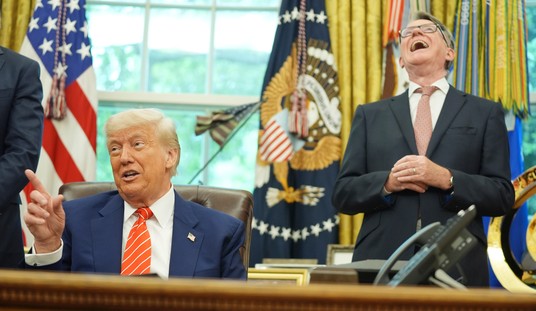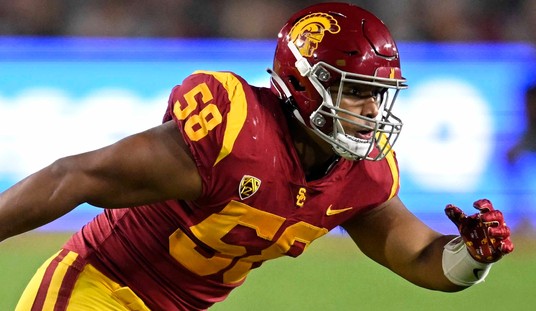What if the American Civil War was not two conflicts, one settling the human rights questions presented in the Declaration of Independence and the other resolving federal versus state powers carved out in the Constitution, but three, the third being a war between living and undead states? Benjamin Walker stars in what has to be the most absurd, over-the-top Gothic horror action movie ever made, Abraham Lincoln: Vampire Hunter, opening nationwide today. In this film’s alternative rendering of history, buried somewhere on the bloody battlefield of Gettsyburg is a silver fork bearing the initials “A.L.” that came from the White House via an unorthodox railroad, played a small part in driving back Pickett’s infamous charge, and helped usher in a new birth of living freedom in the United States.
As crazy as that sounds, the movie is crazier still. Vampire Hunter begins when the boy who would become our 16th president is about  10 years old. An encounter on an Indiana dock with an evil local business baron leads to the death of Lincoln’s mother, which in turn leads to young Abe’s discovery that vampires are real and one of them is his mother’s killer. These vampires are not the twinkly teen heartthrobs of Twilight. They are ravenous, evil monsters thriving in the antebellum American south to build themselves a slave empire. The peculiar institution of slavery provides the vampires with a captive population on which to feed, as well as build commercial and political wealth. Young Abe, already turned abolitionist by his mother’s anti-slavery beliefs and by his friendship with a free black boy named Will Johnson (Anthony Mackie), becomes an axe-wielding action hero at first bent on avenging his mother’s death, and later on eradicating slavery itself to break the power of the vampire empire. Abe meets Henry Sturgess (Dominic Cooper), a mysterious man who saves him from a vampire, offers to train Abe in killing what is already dead, and provides him with targets upon whom to wield his trusty, silver-edged axe.
10 years old. An encounter on an Indiana dock with an evil local business baron leads to the death of Lincoln’s mother, which in turn leads to young Abe’s discovery that vampires are real and one of them is his mother’s killer. These vampires are not the twinkly teen heartthrobs of Twilight. They are ravenous, evil monsters thriving in the antebellum American south to build themselves a slave empire. The peculiar institution of slavery provides the vampires with a captive population on which to feed, as well as build commercial and political wealth. Young Abe, already turned abolitionist by his mother’s anti-slavery beliefs and by his friendship with a free black boy named Will Johnson (Anthony Mackie), becomes an axe-wielding action hero at first bent on avenging his mother’s death, and later on eradicating slavery itself to break the power of the vampire empire. Abe meets Henry Sturgess (Dominic Cooper), a mysterious man who saves him from a vampire, offers to train Abe in killing what is already dead, and provides him with targets upon whom to wield his trusty, silver-edged axe.
Gothic design fetishist Tim Burton and director Timur Bekmambetov team up to deliver the film adaption of Seth Grahame-Smith’s novel of the same title, which itself was a fun, page-turning romp that takes actual events in the life of Lincoln and drapes them in a massive layer of vampire violence and horror. The novel worked far better than it had any right to, and Graheme-Smith wrote the film, so it preserves the spirit of the novel quite well. Burton adds his larger-than-life design flair, and Bekmambetov brings bullet time effects, 3D blood splatters, flying decapitations and a visceral visual energy to the film, which never lets up once the killing starts. Quentin Tarantino would have a hard time surpassing the surreal level of violence that Abraham Lincoln: Vampire Hunter delivers, but with higher-minded dialogue and ideas driving the bizarre plot forward.
In real history , Abraham Lincoln was the tragic philosopher-president who penned the greatest address in American history, and preserved the nation through its worst ordeal while destroying slavery, its worst institution. He cannot be treated lightly and the dialogue must be good. In this film it is better than good. The characters, from Lincoln to Mary Todd (Mary Elizabeth Winstead) to Sturgess to Joshua Speed (Jimmi Simpson) to arch-vampire villain Adam (played with rock star arrogance and decadence by Rufus Sewell) deliver memorable, quotable lines effortlessly. Benjamin Walker’s Lincoln is believable, not a cardboard cutout or unreachable, inhuman icon. He is a man who thinks and breathes, suffers wounds and chops vampires to bits.
, Abraham Lincoln was the tragic philosopher-president who penned the greatest address in American history, and preserved the nation through its worst ordeal while destroying slavery, its worst institution. He cannot be treated lightly and the dialogue must be good. In this film it is better than good. The characters, from Lincoln to Mary Todd (Mary Elizabeth Winstead) to Sturgess to Joshua Speed (Jimmi Simpson) to arch-vampire villain Adam (played with rock star arrogance and decadence by Rufus Sewell) deliver memorable, quotable lines effortlessly. Benjamin Walker’s Lincoln is believable, not a cardboard cutout or unreachable, inhuman icon. He is a man who thinks and breathes, suffers wounds and chops vampires to bits.
So Abraham Lincoln: Vampire Hunter is not perfect, far from it, but it is one of the most fun and oddly original films I have seen in a while. There is nothing — absolutely nothing — understated about this film. It is insane, visually-spectacular fun. As summertime films go it rests on a deeper foundation than most, while it does its best to avoid implying that the Democrats and Republicans of Lincoln’s time were not just political opposites, but fought for ideas on the opposite sides of life itself. The Democrats of Stephen Douglas’ time (played by Alan Tudyk) were unwittingly the party of vampires, much as that party today is the party of dependence of a different sort. The movie avoids mentioning either party by name, though, while it does show the Confederacy establishing an unholy alliance with pure evil.
If you liked the novel, you’re more likely to enjoy the film, but you won’t be lost if you haven’t read the book. Just pick up a quick graphic novel life of Lincoln and add fangs. Abraham Lincoln: Vampire Hunter will not go down as one of the greats of American cinema, but it is a fun way to spend a couple of hours. If you see it, pick 3D for the full impact. I give it 3.5 stars out of 5.










Join the conversation as a VIP Member